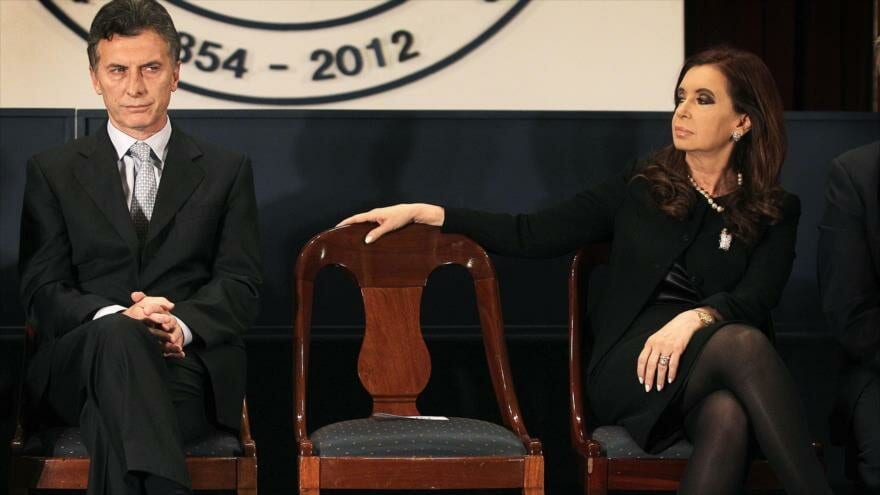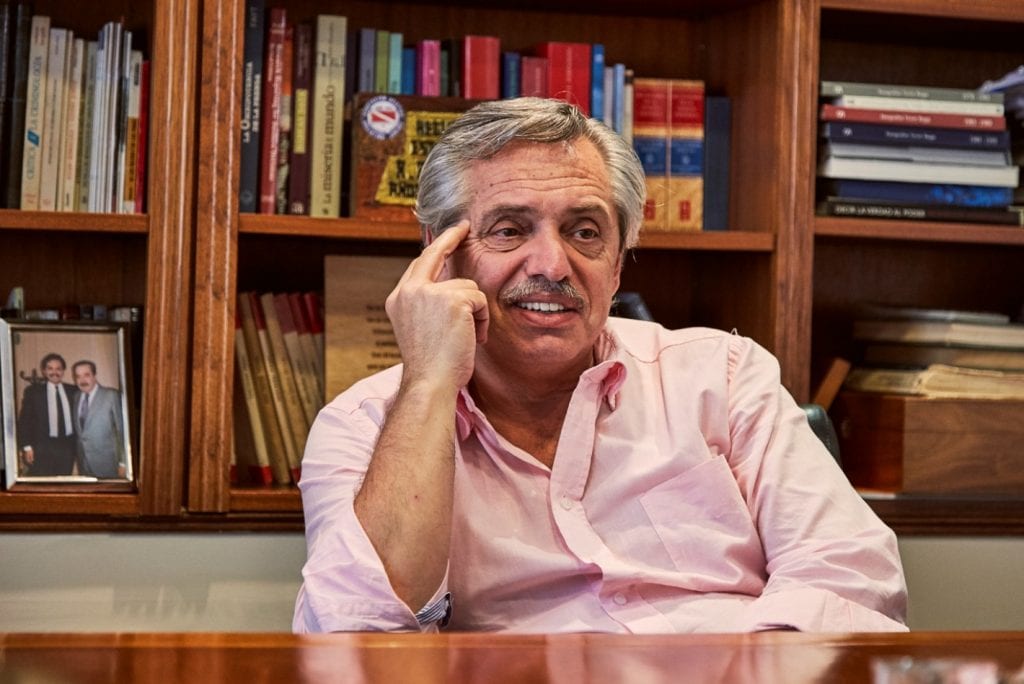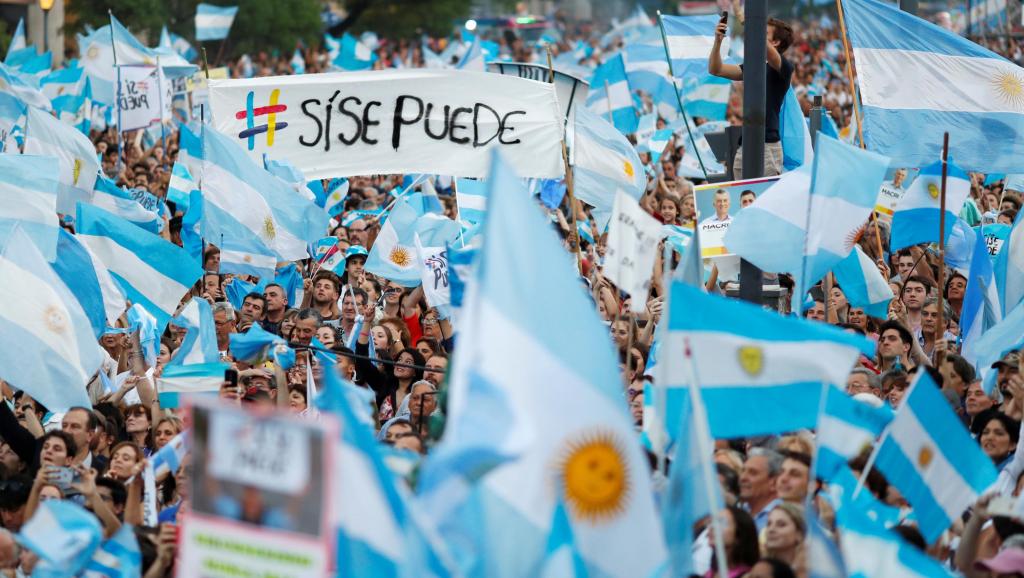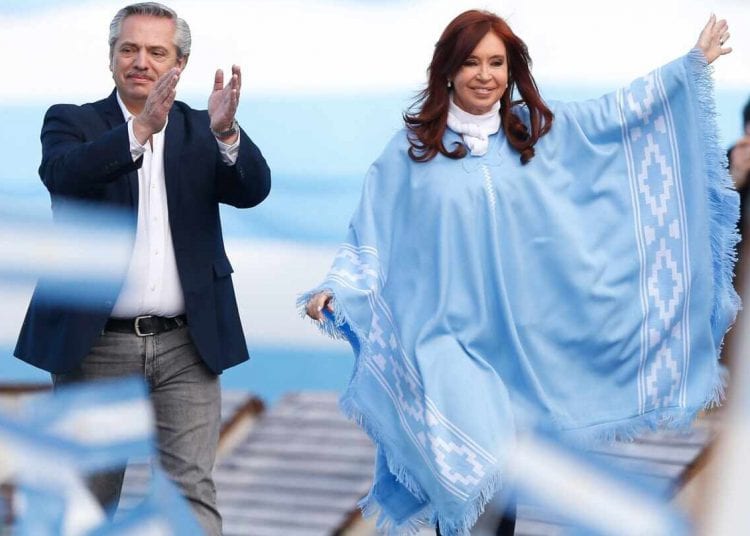December 10, Alberto Ángel Fernández takes over as head of state of Argentina. Today, all Latin American media are discussing the return of the “Peronists” to the regional political arena. The “Plan Summer”, which appeared shortly before the inauguration, outlined the new landmarks of the first 100 days of the Fernández government, which promise to be extremely eventful. What do the “Peronists” intend to offer this time? How does the president-elect plan to “pull” Argentina out of the financial crisis and debt obligations to the IMF?
On October 27, the “left” tandem Fernandez-Kirchner, with a result of 48.1% of the vote, defeated the current head of state, Mauricio Macri in the presidential elections in Argentina. The successful businessman, the former mayor of Buenos Aires, Macri came to power in 2015. At that moment, the state of the politician was estimated at 5.5 million dollars. He promised to significantly improve the situation of citizens of the country, but he did not succeed, and as a result, in 2019, he lost to the “left” politician Alberto Fernández, who is considered to be a follower of the ideas of “Peronism”. It is worth recalling that the political ideology of “Peronism” in Argentina has its roots in the era of ex-president Juan Peron (Spanish – Juan Domingo Perón). This trend implies, according to his followers, socialism “with a human face”, first of all, addressed to the poor people much more than to the rich.

Alberto Ángel Fernández is not a new face for Argentinean voters. He led the Cabinet of Ministers under the President of Argentina, Nestor Kirchner (Spanish – Néstor Carlos Kirchner Ostoić), and then under his wife, Cristina Fernandez Kirchner (Spanish – Cristina Elisabet Fernández de Kirchner) from 2003 to 2008, which he proposed to become vice president of his government. At the same time, the relations of both politicians at one time experienced difficult and even conflicting moments. Initially, plan of Fernández was based on combining “Peronism”, traditionally oriented toward workers, rather than business owners, into a single whole. Indeed, in recent years, the followers of this political movement have been fragmented. Such a union meant reconciliation with his longtime adversary, Christina Kirchner.
In the current difficult macroeconomic situation, Fernández awaits a difficult legacy, as Argentina is on the verge of default. The main task of the victorious tandem of the political platform “Universal Front” (Spanish – Frente de Todos) is to apply a number of tough measures to stabilize the state economy. According to official figures, in mid-October, the IMF significantly worsened the forecast for a fall in Argentina’s GDP to 3.1% in 2019. According to experts, the economy of the Latin American country will not recover during 2020, but will decrease by 1.3%, as noted in the report of the fund.
In the past few years, Argentina has experienced a deepening economic crisis. In addition, the situation worsened even more in August after the results of the presidential “primaries”, when the center-left opposition was ahead of the coalition of the incumbent head of state by a wide margin. The day after the vote (August 14), exchanges “collapsed” by 38%, and the Argentine peso “fell” by almost 30% and still cannot win back its positions. In this regard, the government again initiated negotiations with the IMF to revise the terms of debt repayment, since at the end of June 2018 the fund approved a 50 billion dollars loan to Argentina under the “stand-by” scheme. As a result, at the end of October this year, the IMF agreed to increase the total size of the financing program for the Latin American country to 56.3 billion dollars.

After winning the presidential elections, during the transition of power (between October 27 and December 10), the victorious tandem began to closely select candidates for key positions in the new government, which will have to implement a number of measures aimed at resolving the existing socio-economic problems. Among them, the most acute are: preventing a further drop in GDP and total foreign trade, as well as curbing inflation. The government of Fernández will need to quickly normalize the monetary and financial situation in the country, in particular, to stop the depreciation of the Argentine peso, in addition, to reduce the increase in sovereign debt. The main tools for implementing such macroeconomic tasks will be to ensure the influx of national and foreign investments into the state economy, without which it is impossible to launch large-scale projects to support the country. However, it is worth noting that behind each of these difficult points are the obsolete institutional and structural “levers” that have been waiting for their renovation for decades.

Due to the volume of accumulated problems, shortly before the inauguration of the new president, the “Plan Summer” (Spanish – Plan Verano) was created and announced, outlining the landmarks of the first 100 days of the Fernández government that promise to be extremely eventful. The most important technique of the team of new leader will be a set of measures to increase the solvent demand of the bulk of the population, which is considered as the main “driver” for economic development. As part of this measure, it is planned to increase the minimum size of pensions and children’s subsidies, freeze prices for a basic food basket, and also abolish VAT on food for people with a low level of monthly income. The Fernández government plans to finance these payments through additional cash emissions, increased export taxes and deferred payments on government debt.
According to a number of economic analysts, the implementation of the planned macroeconomic strategy of the Fernandez-Kirchner tandem will face major risks and will not be able to guarantee a quick improvement in the situation. Too many unknown “variables” arise in the background: how exporters will behave under the new tax regime; how the new government will be able to agree with creditors; whether the increase in the money supply will lead to a new round of inflation. There are still no simple answers to these and other complex questions. It is with this “baggage of problems” that Argentina “breaks” into the spring with a new leader and the “Plan Summer”. The first 100 days of Alberto Fernández presidency will determine not only the political course, but also the country’s socio-economic situation for the next decade.


